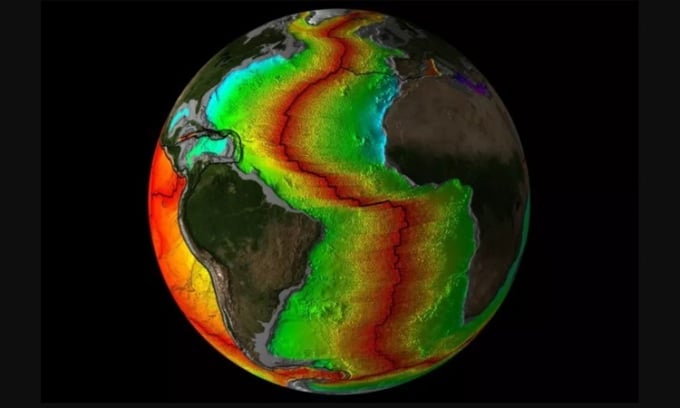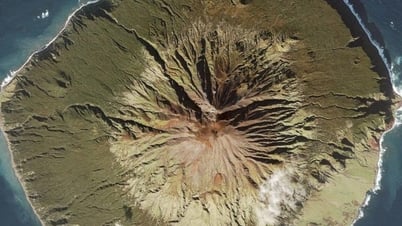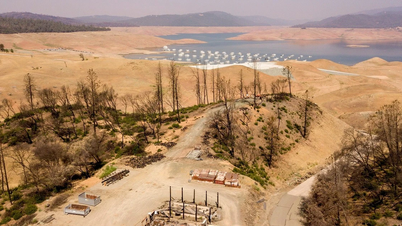The giant ocean between Europe and America will close in 20 million years due to the influence of subduction zones.

Tectonic plates form the Atlantic Ocean. Photo: NOAA
Just before the continents begin drifting back together, researchers predict that an “Atlantic Ring of Fire” will form, pulling tectonic activity from the Mediterranean into the Atlantic, according to research published in the journal Geology, Newsweek reported on February 16. This will begin to happen in about 20 million years. That’s a short time in geological terms, but an extremely long time in human terms.
Tectonic plates constantly move at incredibly slow speeds. Sometimes, oceans form when plates move apart and close when they drift back together after hundreds of millions of years, in a process called the Wilson Cycle. It was this process that caused the supercontinent Pangaea to break apart 180 million years ago, forming the Atlantic Ocean, and the ancient Tethys Ocean to shrink into what is now the Mediterranean Sea.
For the Atlantic Ocean to close, new subduction zones would need to form. These are places where one tectonic plate is pushed under another, sinking into the Earth’s mantle, due to differences in density between the two plates. Typically, an oceanic plate will be subducted under another continental or oceanic plate.
Subduction zones are characterized by intense geological activity, including earthquakes, volcanic eruptions, and ocean trenches. However, these regions are difficult to form because tectonic plates are rigid, and a subduction zone requires a plate to break apart and bend. However, pre-existing subduction zones can move in a process called subduction transgression.
The Mediterranean subduction zone beneath the Strait of Gibraltar will move deeper into the Atlantic Ocean over the next 20 million years, creating an Atlantic Ring of Fire similar to the one in the Pacific , according to a study by the University of Lisbon that used computer models to predict future tectonic plates. João Duarte, a researcher at the Dom Luiz Institute at the University of Lisbon, and his colleagues describe how the Gibraltar subduction zone has slowed down over the past few million years. Few scientists believe it is still active. However, after the subduction zone enters the Atlantic, it will become more active, forcing the Atlantic Ocean to close.
"There are two other subduction zones at either end of the Atlantic: the Lesser Antilles in the Mediterranean and the Scotia Arc near Antarctica. However, those subduction zones invaded the Atlantic a few million years ago. Studying the Gibraltar zone is an invaluable opportunity because it allows us to observe the process in its early stages," Duarte said.
The team concludes that transgressive subduction zones may be a common way for oceans like the Atlantic to close, and thus an important factor influencing how the planet evolves geologically.
An Khang (According to Newsweek )
Source link


![[Photo] Keep your warehouse safe in all situations](https://vphoto.vietnam.vn/thumb/1200x675/vietnam/resource/IMAGE/2025/10/1/3eb4eceafe68497989865e7faa4e4d0e)


![[Photo] President of the Cuban National Assembly visits President Ho Chi Minh's Mausoleum](https://vphoto.vietnam.vn/thumb/1200x675/vietnam/resource/IMAGE/2025/10/1/39f1142310fc4dae9e3de4fcc9ac2ed0)

![[Photo] Hanoi morning of October 1: Prolonged flooding, people wade to work](https://vphoto.vietnam.vn/thumb/1200x675/vietnam/resource/IMAGE/2025/10/1/189be28938e3493fa26b2938efa2059e)














![[INFOGRAPHIC] DJI Osmo Nano Action camera, super compact, 4K 120fps recording](https://vphoto.vietnam.vn/thumb/402x226/vietnam/resource/IMAGE/2025/10/1/8408489112ee446dab897373255c827e)












































































Comment (0)